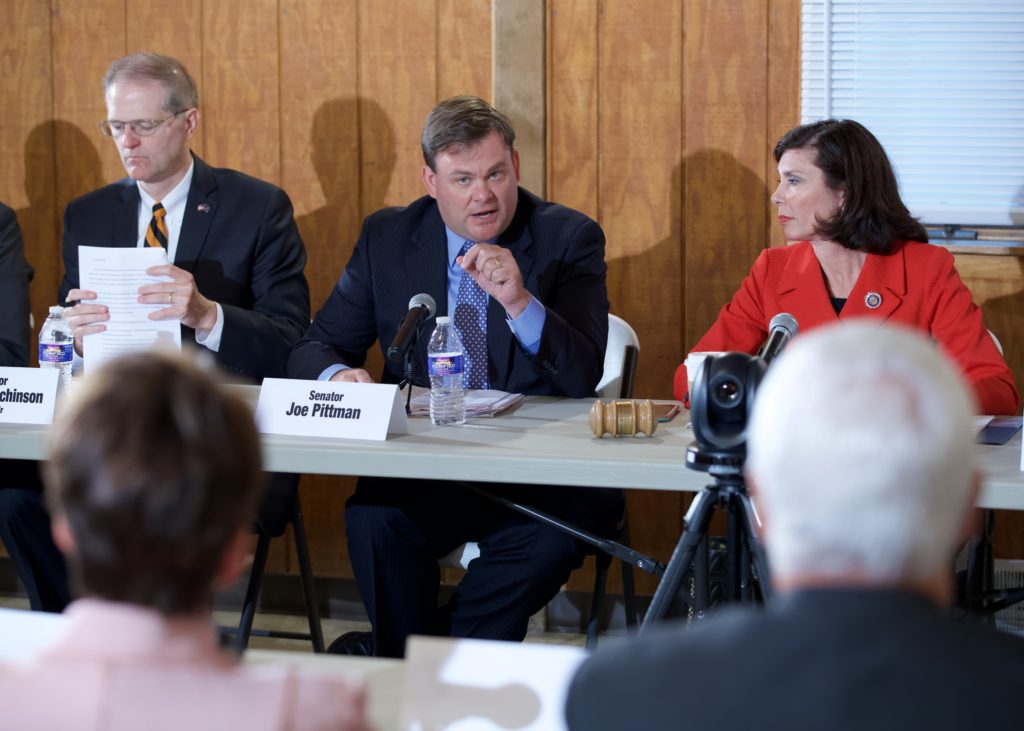
The Senate Communications and Technology Committee held a public hearing Wednesday in Indiana County on the role and impact high-speed internet plays in today’s economy.
The public hearing, requested by state Sen. Joe Pittman (R-Armstrong/Butler/Indiana/Westmoreland), featured experts from across the state who are working to close the digital divide in Pennsylvania.
“It was important to bring my colleagues to Indiana County to not only learn more about the issue from a state perspective, but show the issue is prevalent throughout the Senate district I represent,” Pittman said. “I appreciate the feedback we’ve received as many local residents have expressed to me their frustration over the lack of high-speed internet access in our area. I will continue to work with the committee to address this major problem adversely impacting so many individuals across the 41st District.”
The hearing included three panels on various topics.
The first panel focused on state perspectives and included witnesses from the Pennsylvania Public Utility Commission, the Center for Rural Pennsylvania, the Governor’s Office of Broadband Initiatives, Verizon and the Pennsylvania Telephone Association.
“Access to broadband is no longer a want; it is a need,” said Norman Kennard, a commissioner on the Public Utility Commission.
The second panel highlighted the impact on local governments and included representatives from the Pennsylvania Local Government Commission, the Pennsylvania Association of Township Supervisors and Indiana County Commissioner Rodney Ruddock.
The third panel explored how the lack of high-speed internet impacts job creation and included representatives from the Pennsylvania Manufacturers’ Association, the North Central Pennsylvania Regional Planning and Development Commission and REA Energy Cooperative, Inc.
“Without broadband Internet access, the ability to connect modern manufacturing plants to the ‘industrial internet of things’ is limited,” David Taylor, president & CEO of the Pennsylvania Manufacturers’ Association, said. “Because of this limitation, industrial investors will likely look to locations where high-speed internet connections are readily available, as opposed to locations where this vital infrastructure is not yet developed.”
“This will surely lead to rural and technologically underserved areas of Pennsylvania falling even further behind as they will be unable to attract business investments that could reshape and revitalize entire communities and regions,” Taylor added.
The committee has scheduled its next public hearing for Sept. 3 in Monroe County, when the focus will be on the impact of broadband access on emergency response and medical perspectives.